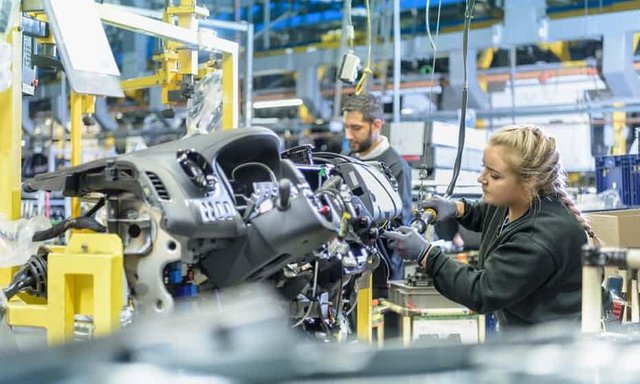Are apprenticeships the solution to the UK’s skills gap?
The education system isn’t meeting the skills needs of employers – but the government’s plan to create 3 million apprenticeships by 2020 is designed to change that

As a nation, we urgently need more professionals – engineers, designers, digital wizards and skilled managers – and the new apprenticeship levy has thrown a lifeline to companies scrabbling for talent. Schools and universities just aren’t turning out enough people with the right skills to plug gaps in some sectors, say leading graduate employers.
In a bid to redress this, the government has committed to creating 3 million new apprenticeships by 2020, paid for in part by a new employer levy introduced in April this year. “We’re starting to witness a sea-change in attitudes,” says David Willett, director of corporate sales at the Open University (OU), which now offers a range of apprenticeships, some at degree level. “Employers respect apprenticeships. They’re seen to add real value to a business – having a positive impact on productivity and performance.”
Advertisement
As of April, companies with a pay bill of more than £3m have been charged a compulsory levy of 0.5% of their wage bill, which employers in England can claim back to fund new apprenticeships – the government will top up these funds by 10%, and levy-paying employers have a £15,000 allowance to invest in apprenticeships.
Businesses expect numbers of apprenticeships to rise this year by 59%, boosted by the new levy, research from the Association of Graduate Recruiters (AGR) shows, and employers, including Unilever, Jaguar Land Rover and auditors KPMG, say they’re offering more schemes.
While fewer than 1.3% of employers are liable to pay the levy, the money will also be spread around smaller companies whose pay bill is below the £3m threshold – they’ll receive up to 90% towards the cost of apprenticeships.
“Benefits for us as a business are many,” says Claire Tennant, at marketing and communications agency MC2 in Manchester, which currently has two degree apprentices among 45 staff – paid for by the levy. “We’re able to make sure apprentices get exactly what we need out of the course. It means (apprentices) also bring in new ideas – they’re learning cutting-edge stuff at uni and bringing it back to the business. It helps us stay ahead.”
But a third of big companies still don’t understand how apprenticeships can help their business and probably won’t use the funds, says Stephen Isherwood, chief executive of the AGR. “Another third of companies are very switched on,” he says, “particularly those such as accountancy firms who have long offered work-based training. And the rest are thinking about it but not quite there yet.”
UK skills gaps are acute. British companies are short of some 20,000 engineers and technicians every year and the country will need 1.8 million more by 2025, says the not-for-profit organisation Engineering UK.
And in the wake of some heavyweight cyber attacks last year, the technology sector is desperate for skills to fight cybercrime. New high-level apprenticeships have been designed with digital and other skills shortages in mind. Combining tailored professional training with an academic qualification, they introduce recruits to working life as well as delivering professionally accredited knowledge.